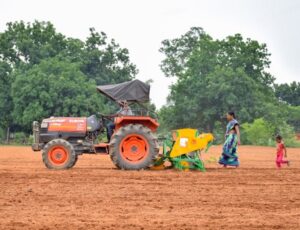
Farmer Field Schools are participatory advisory services, where farmers cultivate together small experimental plots and merge their understandings. Researchers Bakker et al. studied how such schools influence farmers. They observed that consultative Farmer Field Schools cause limited farmers’ changes in cropping practices. On the contrary, collaborative Farmer Field Schools encourage farmers to adapt their practices to real constraints encountered in their own fields. They initiate good processes for locally adapted cropping systems.










